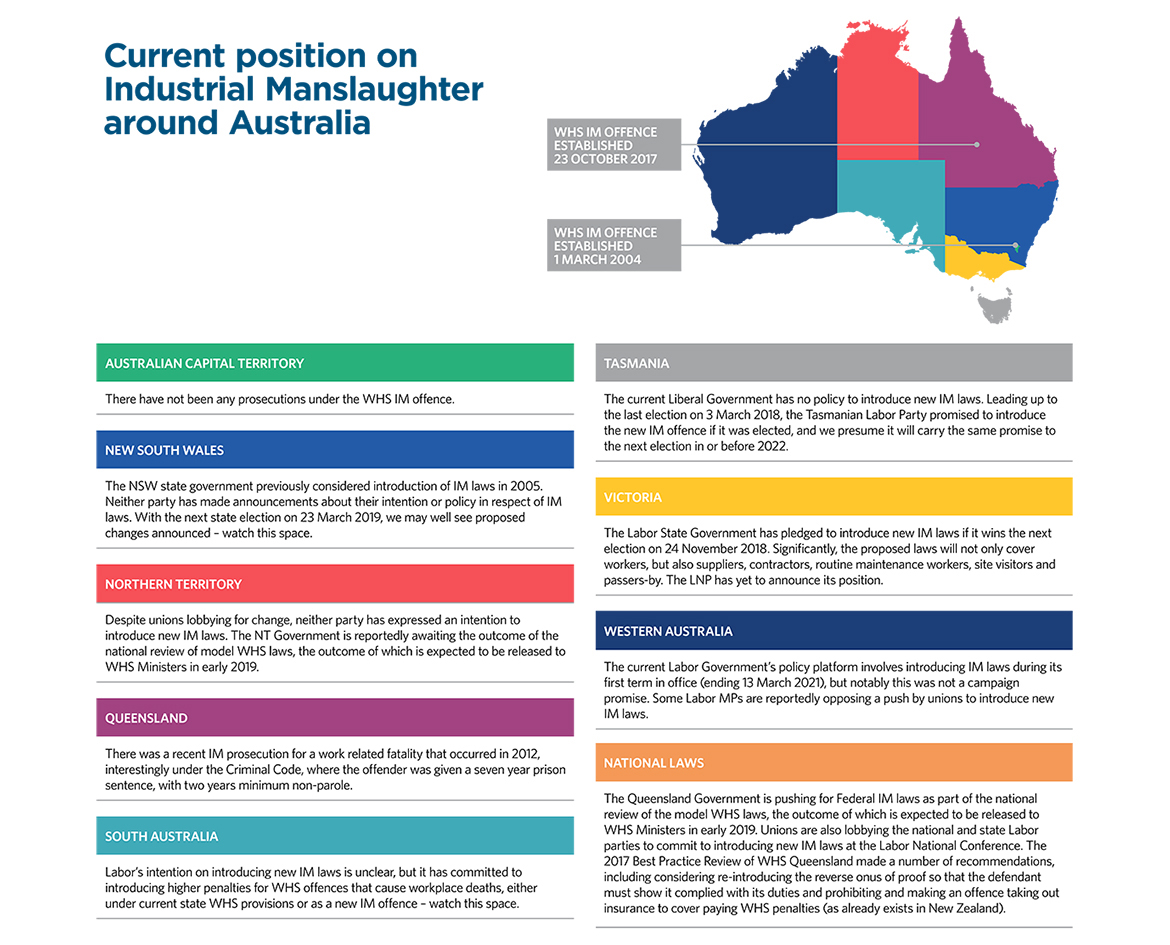Stay in the know
We’ll send you the latest insights and briefings tailored to your needs
We are witnessing a clear escalation in regulatory activity across Australia, most recently and very topical is the new Industrial Manslaughter (IM) offence.
Where a business is found to have negligently caused the death of a worker, the possible consequences for leadership, management and businesses are potentially significant. Senior officers (which includes everyone involved in management) could face up to 20 years jail time and businesses may be fined up to $10 million (or up to $16 million in Victoria).
The new IM offence is extremely sobering for businesses and individuals on many fronts, including the fact that a monetary fine may not be an option (leaving only jail time if found guilty) and the offence may apply to a death which occurs later than at the time of the workplace incident, potentially much later (think asbestosis or a suicide following workplace bullying or harassment), giving no certainty on limitations of legal actions. There is no time bar to proceedings commencing.
Now, more than ever before, it is important for businesses to be on the ‘front foot’ in reviewing, updating and practising their workplace health and safety policies, procedures and training. It is important enough to warrant putting your incident response and incident investigation protocols through a management of change review. Consider how your onsite management team would participate in responding to a fatality or serious injury later resulting in a fatality in terms of scoping an investigation, drafting alerts or interacting with regulators (if they are exposed to prosecution).
Once introduced, it seems unlikely that IM laws will be repealed. There is no political mileage in repealing it.
Below is an update by state and territory on the status of IM laws.


Managing Partner - Employment, Industrial Relations and Safety (Australia, Asia), Melbourne
The contents of this publication are for reference purposes only and may not be current as at the date of accessing this publication. They do not constitute legal advice and should not be relied upon as such. Specific legal advice about your specific circumstances should always be sought separately before taking any action based on this publication.
© Herbert Smith Freehills 2025
We’ll send you the latest insights and briefings tailored to your needs